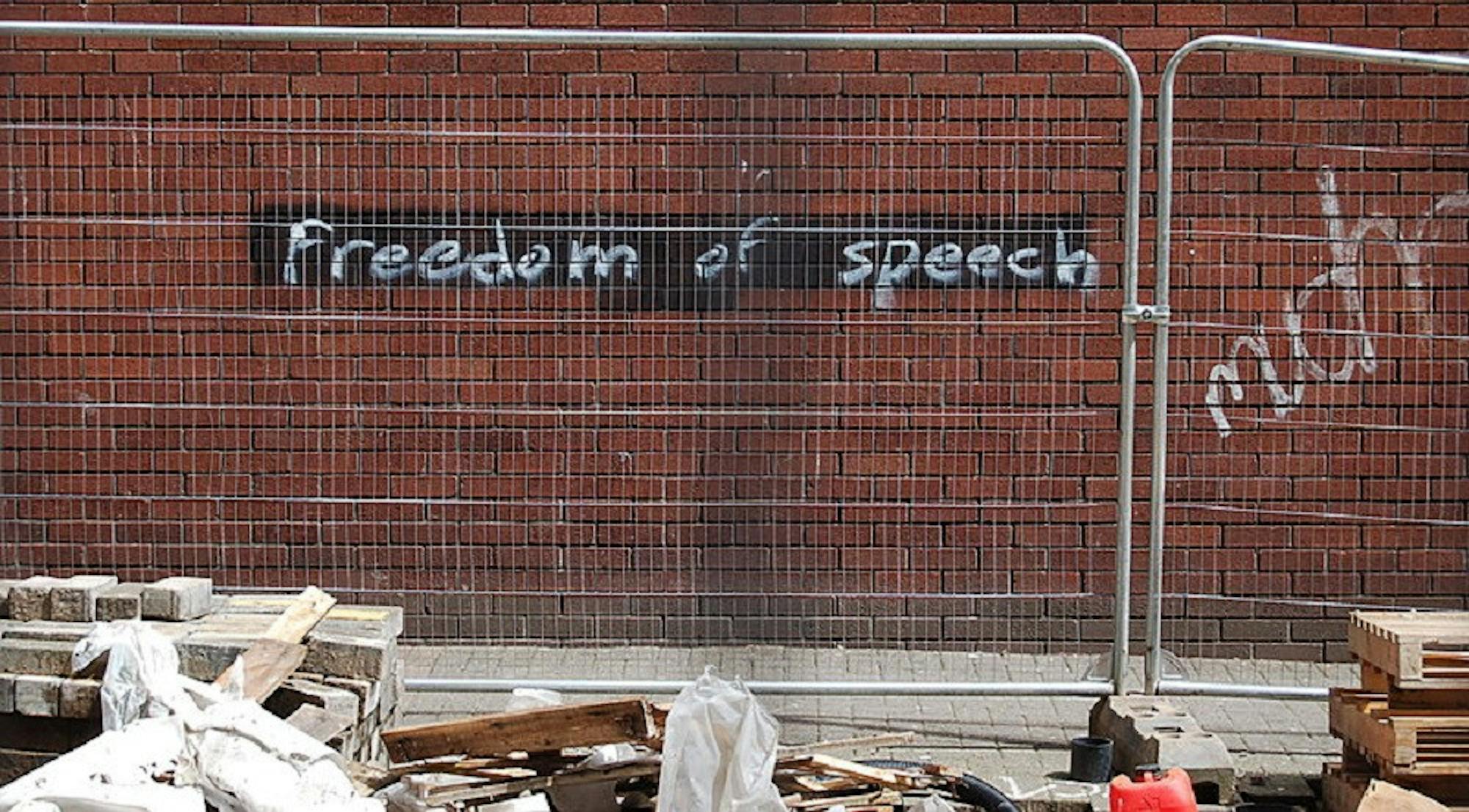
Early Sunday evening, I noticed that a large wall had been erected outside of the DUC that blared “ISRAEL IS AN APARTHEID STATE,” in big, block letters. Along with fact sheets documenting alleged incidents of Israeli apartheid, there were messages to “free Palestine” and a “frequently asked questions” section allaying concerns that any of this might be anti-Semitic. Several hours later, the wall had been stripped down to its frame in an apparent act of vandalism.
Apartheid — when talked about in regards to Israel — is a highly inflammatory subject. On the one hand, it inspires feelings of indignation and outrage in those who understand Israel as a democratic state in the Middle East. On the other, pro-Palestinian activists use the term in an attempt to describe the breadth of what they consider to be Israel’s illegal occupation of and activities in Palestinian lands. Israel is compared to apartheid South Africa, in which the country’s black citizens were systematically discriminated against on the basis of their race. Even today, many parts of South Africa experience a sort of de facto apartheid; the poorest neighborhoods are almost exclusively black, and both the country’s political structures and individual communities are still very much racially charged. Thus, for understandable reasons, many pro-Israel individuals are upset by what they perceive to be a cavalier and misguided use of the term.
My purpose in writing this article is not to weigh in on the political debate vis-à-vis the Arab-Israeli conflict. I hardly feel qualified to offer opinions on such a weighty and emotionally charged subject. What I have been most struck by — both in the days since the erection of the wall in honor of national “Israel Apartheid Week,” as well as through the rest of my time at Emory — is the lack of substantive dialogue conducted between student groups.
Author Salman Rushdie delivered a lecture at Emory last weekend in which he expounded upon the threats to freedom in the 21st century. What struck me most about his speech was this statement: “Freedom of speech begins where the views of others you hate are permissible. If you don’t support this right, then you don’t believe in free speech.” I find his point to be particularly relevant in the context of the recent events of the apartheid wall’s erection, vandalism and subsequent rebuilding.
On a campus like Emory, where freedom of expression is ostensibly the right of every student — no matter how virulently others may disagree with a specific stance — the vandalism of the wall is a threat to that expression. “Censoring” the wall will not make the views expressed by those who erected it disappear. Vandalizing property in the name of offense is not and will never be an appropriate or effective means of protest to views seen as unpleasant or aggressive. Even if the wall seems misinformed, hyperbolic or outright incendiary, it must be allowed to stand. Democracy is permitting others to say what you think unsayable, or what you disagree with or what you do not want to hear. According to Rushdie, the greatest danger to free expression in America lies within the walls of the academy. That sentiment has certainly proven true this week, where it seems as if all anyone seems to be doing is shouting over the other to drown them out.
Inclusive, uncomfortable dialogue is the only way we can ever hope to build relationships with others who we see as opposed to us in every way. The events of this week haven’t been dialogue; they have been rhetoric. And it is in our discourse that we often undermine the very causes for which we seek to advocate. There is a difference between freedom of speech and distinction of opinion. There is a difference between engaging in constructive dialogue and shouting into thin air simply to drown out the voices of those we’d rather not hear.
In the past, people have written articles about Emory’s need to create more space for pro-Palestinian voices. I have seen articles to counter the claim that pro-Palestinian voices don’t have equal space. I am arguing that we need more space for expression, in whatever form that expression may manifest. We need student leaders engaged in dialogue, willing to have uncomfortable conversations and willing to forge uncomfortable friendships. We need Emory to be a place where Israel apartheid walls and Israel celebrations can exist simultaneously, where students are free to choose to attend one or both events, and from which they can leave having learned something they didn’t know before.
Kate Moran is a College senior from St. Michaels, Maryland.
Vandalism Compromises Freedom of Expression
Photo Courtesy of Flickr Creative Commons: Walt Jabsco





